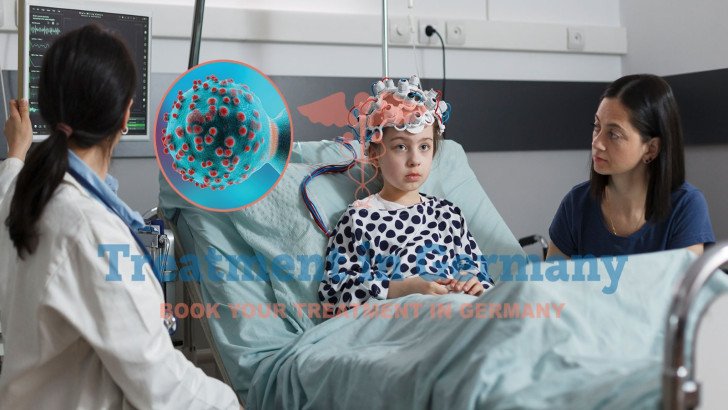
Advanced cancer refers to the late stages of malignancies where cancer cells have spread beyond their origin, affecting vital organs and often becoming incurable.
Germany leads the global stage in advanced oncology, championing the significance of early palliative integration in advanced cancer. Advanced cancer, characterized by widespread metastasis or recurrence (e.g., to the liver, lungs, or bones), poses profound physical and emotional challenges for patients. Through early palliative integration, patients experience improved disease management, enhanced quality of life, and personalized care plans.
Advanced cancer refers to the late stages of malignancies where cancer cells have spread beyond their origin, affecting vital organs and often becoming incurable. Common drivers include genetic mutations, chronic inflammation, age-related risks, and lifestyle factors like smoking. This stage brings intense symptom burden, emotional distress, and a shortened life expectancy, typically ranging from months to a year without aggressive intervention. German oncology centers advocate for early palliative integration to address these challenges from diagnosis, enhancing patient well-being and treatment adherence.
Identifying advanced cancer symptoms and the associated challenges underscores the need for early palliative integration. These symptoms significantly impact patient health:
Challenges include delayed palliative care access, inadequate symptom control, and family caregiving strain. German healthcare providers prioritize early integration to mitigate these issues, improving overall care.
Unveiling the Benefits of Early Palliative Integration in Advanced Cancer
Early palliative integration in advanced cancer offers multifaceted benefits, enhancing patient outcomes. Key advantages include:
German oncology centers integrate these benefits into treatment plans, ensuring holistic patient support from the outset.
Clinical Evidence Supporting Early Palliative Integration in Advanced Cancer
Germany’s clinical evidence in 2025 provides a strong basis for early palliative integration, backed by robust research.
Survival and Quality of Life Outcomes
A 2024 study from the University Hospital Dresden found that patients with advanced cancer receiving early palliative integration reported a 40% improvement in quality of life scores and a median life expectancy increase of 2.5 months compared to those with late intervention. This highlights the transformative impact of timely care.
Progression and Monitoring Techniques
German oncologists employ advanced monitoring techniques:
Ongoing Research and Trials
German clinical trials advance palliative care:
Why Germany Excels in Early Palliative Integration for Advanced Cancer
Germany offers unparalleled expertise for cancer patients:
Risk Factors and Preventive Measures for Advanced Cancer
Preventing progression to advanced stages supports palliative needs. Key risk factors include:
German specialists recommend regular screening, healthy lifestyles, and early treatment to reduce risk.
Comprehensive Multidisciplinary Palliative Care
Germany’s multidisciplinary palliative care integrates:
This approach optimizes patient outcomes.
Post-Treatment Care and Enhancing Quality of Life
Post-treatment support includes:
Challenges and Future Directions
Challenges include stigma around palliative care and resource limitations. German researchers address these through:
Future palliative advancements promise improved effectiveness.
Conclusion
Germany’s emphasis on early palliative integration in advanced cancer offers hope through enhanced disease management, prolonged survival, and integrated care strategies. With multidisciplinary palliative care and innovative research, German oncology centers deliver superior quality of life and support systems, establishing their leadership in advanced cancer care.
Frequently Asked Questions
What are the primary symptoms of advanced cancer requiring early palliative integration in 2025?
Symptoms include chronic pain, fatigue, and shortness of breath, nausea, emotional distress, and swelling, signaling the need for palliative care to improve patient health.
How does early palliative integration differ from late-stage care in advanced cancer?
Unlike late-stage care focusing on end-of-life, early palliative integration begins at diagnosis, enhancing quality of life and treatment tolerance, as supported by German clinical insights.
What diagnostic methods assess the need for palliative care in advanced cancer in Germany?
Germany uses pain scales, quality of life questionnaires, performance status evaluations, and blood tests to determine care needs, ensuring tailored support planning.
Are there specific clinical trials in Germany focusing on early palliative integration for advanced cancer?
Yes, trials like PALLI-CARE and EMO-SUPP explore pain management and emotional support, improving survival rates and disease control for advanced cancer patients.
What follow-up care is provided after early palliative integration for advanced cancer in Germany?
Care includes ongoing surveillance with symptom assessments, rehabilitation for fatigue, and emotional wellness support through counseling, ensuring sustained quality of life.
How does Germany compare to the UK or US in early palliative integration for advanced cancer?
Germany excels with advanced palliative facilities, access to pioneering trials, expert multidisciplinary teams, and integrated care, surpassing many international standards.
Can early palliative integration prevent progression in advanced cancer?
While it cannot stop progression, early palliative integration can manage symptoms and improve life expectancy by 2-3 months, as per German preventive strategies.
Does Germany support international advanced cancer patients with palliative needs?
Yes, hospitals in Germany provide language support, travel assistance, and family counseling to ensure comprehensive palliative care for global patients.
What are the most promising aspects of early palliative integration for advanced cancer in Germany?
Pain management, emotional support, hospice coordination, and AI-driven care planning are advancing effectiveness, promising better quality of life.
How do patients experience the benefits of early palliative integration compared to standard care?
Patients report reduced symptom burden, improved mental health, and enhanced quality of life with early palliative integration, as demonstrated in German care programs, compared to delayed interventions.
For more information or a free consultation, visit our contact us page.
Kindly complete the form below, and our dedicated team will reach out to you promptly. We look forward to connecting with you soon!
Trierer Straße, 56072 Koblenz, Germany
.webp)
.webp)
 (1).webp)
 (1).webp)

.webp)
.webp)
 (1).webp)
 (1).webp)
